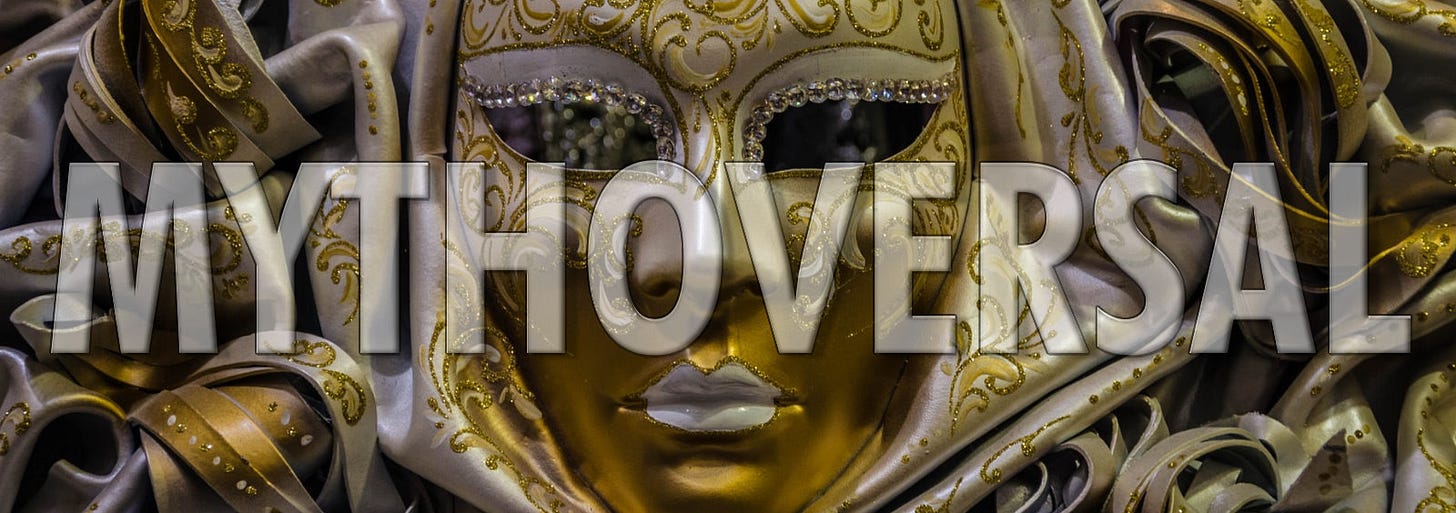Disrupting the Trojan War - Part 1
More women with agency are restoring inclusion, diversity, and equity to classical texts.
The Reset - Now Quarterly!
Longtime followers will remember that for a while last year, I was changing up the Mythoversal website every week, or “Mythology in Verse” as it was called back then.
While I’m still releasing a new poem every Sunday, as I have since the pandemic began, I’m planning larger changes on a quarterly basis, which is why you may have noticed so many tweaks to the website through the month of March.
One big change is that, although Mythoversal has been “disrupting the Trojan war” for a while by now, this month marked my first flailing stab at setting out what “disruption” means to me. I’ve come up with five areas of disruption, which I’ll be presenting in no particular order on consecutive Trojan War Wednesdays.
Here is the first:
1. More Women with Agency
Powerful goddesses feature prominently throughout Greek mythology. The Trojan War is, in a way, just one link in the chain of events set off by Eris, the goddess of discord. And with the continuing rivalry among Hera, Athena, and Aphrodite already providing energy to the conflict between the Achaeans and Trojans, the Iliad throws Achilles’s goddess mother, Thetis, into the mix.
But Bronze Age Mycenae and Troy alike were patriarchies on steroids, against which mortal women of all stations struggled through stories that were mostly left untold. These women exist in classical sources, and some of their stories are detailed, but few step into the spotlight for long and fewer still ever claim their proper voice.
As one example, Briseis is central to the conflict between Achilles and Agamemnon, but not because of anything she says, thinks, or does. Homer's Iliad treats Briseis as a prize to be traded back and forth in a story where she might as well be a shiny gold trophy.
The Mythoversal retelling will allow us to view events through Briseis’s voice and from her own perspective. In the process, we will get a better sense of her personality, relationships, and character arc. Briseis has already made choices that have influenced the plot.
As currently drafted, and subject to further edits, nine of the first twenty installments of Rage are narrated by female voices, resulting in a noticeable shift in tone and focus as the story unfolds through different sets of eyes.
Nothing has happened that contradicts Homer’s version. This is not a disruption to the established events of the traditional story. For example, there won’t be any women warriors on the battlefield until the Amazons arrive. But it’s important for us to recognize that there were once women warriors in the story of the Trojan War. In some versions, they arrived before the (spoiler alert) death of Hector, and would have been present during the time of the Iliad.
In a previous disruption, centuries ago, women were deemphasized and their stories outright dropped from the popular canon. In that way, the Mythoversal retelling is less of a disruption than just restoring something that always used to be there.
Next week I’ll talk about the second disruption, highlighting the ethnic diversity of the Trojan War. And going forward, the most recently updated version of these disruptions will live on a dedicated page on the Mythoversal website.
As always, I’d love to know what you think!
—Greg R. Fishbone, Mythoversal Author-in-Residence
Nine years into the siege of Troy, the greatest Achaean warrior, Achilles, is sidelined by rage and resentment following a conflict with his commander, Agamemnon. This short but intense phase of warfare leads to devastating losses on both sides, conflict among the gods, and great tragedy on a human level.
Rage! is a disruptive retelling of Homer’s Iliad, restoring diversity, inclusion, and equity to a three-thousand-year-old tradition.
This week’s Rage centers on Phoenix as he delivers advice to Achilles in the form of a parable, as he often likes to do.
Through retold myths, informational articles, and educational resources, Mythoversal seeks to foster a deeper understanding of traditional cultures, their impact on each other, and on the modern world.
Our entry point into the Mythoverse is the land of Mythoversal Hellas, where we disrupt and deconstruct Greek, Hellenic, Roman, and Byzantine sources to create a mythic environment that's inclusive, inviting, relevant, and welcoming. The result is both a setting and a lens for modern readers.
The Mythoversal Newsletter brings author commentary, mythological movie reviews, and occasional essays to your inbox. If a friend forwarded this issue to you, consider subscribing for yourself to be sure you don't miss any future content.









